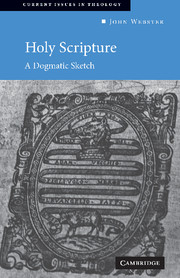4 - Scripture, theology and the theological school
Published online by Cambridge University Press: 05 June 2012
Summary
In the autumn of 1558, Zacharius Ursinus, then aged twenty-four, moved to Breslau to take up a post at the Elisabeth-Schule, teaching Latin and instructing his pupils in the basics of theology by expounding a little work from the pen of his mentor Melanchthon, the Examen ordinandorum. Ursinus is chiefly remembered for his place in the consolidation of Reformation theology and church life in the Palatinate under Elector Frederick III; above all, of course, he played a key role in drafting that exquisite statement of moderate Reformed teaching, the Heidelberg Catechism. More generally, he is considered a formative figure in the development of Reformed covenant theology. Although the two years which Ursinus spent teaching in Breslau are usually passed over quickly in accounts of his work, one important text from that period has come down to us, a text which is extraordinarily enlightening about the theme of this chapter, namely the relation of Holy Scripture to Christian doctrine. The text is Ursinus' ‘Hortatory Oration to the Study of Divinity’, his inaugural address at the Elisabeth-Schule, in which he gives an account of his understanding of the tasks of doctrine and catechesis in the congregation. The hand of Melanchthon is evident throughout the oration; but whatever detailed conclusions may be reached about its authorship, the text remains a fascinating articulation of an understanding of the nature and ends of Christian theology, an account of the matter which, moreover, has been almost entirely eclipsed in the modern theological academy.
- Type
- Chapter
- Information
- Holy ScriptureA Dogmatic Sketch, pp. 107 - 135Publisher: Cambridge University PressPrint publication year: 2003

